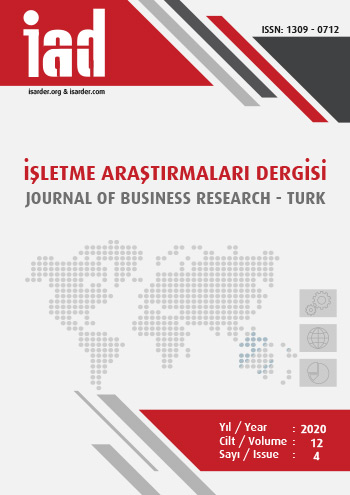Exploring Factors Influencing Internationalization of TPL Service Providers: Evidences From Turkey
Exploring Factors Influencing Internationalization of TPL Service Providers: Evidences From Turkey
Author(s): Tuğçe Danacı Ünal, Selami ÖzcanSubject(s): Business Economy / Management, International relations/trade, Marketing / Advertising, Transport / Logistics
Published by: Orhan Sağçolak
Keywords: TPL; Services Export; International Logistics; Internationalization; Service Marketing;
Summary/Abstract: Purpose – This study aims to determine the factors affecting operational and managerial decisions related to the internationalization process of Third-Party Logistics (TPL) service providers operating in Turkey. Design/methodology/approach – Theoretical background of the study is based on Dunning Eclectic Paradigm which is one of the internationalization approaches, argues that the internationalization of a business depends on its own OLI (ownership-O, location-L, and internalization-I) advantages. The conceptual model of the study was set by grouping these advantages (factors) obtained from a comprehensive literature review and expert decisions. A questionnaire form was structured subject to the network structure of the factors in this model. Data collected from survey forms filled in by 31 logistics experts, were analyzed by using Analytical Network Process (ANP). Findings – The results of the study reveal that the most important factors influencing the internationalization process of TPL service providers are political factors, economic factors, cultural factors and long-term relationships respectively. However, the least effective ones were determined as the number of vehicles, number of employees and market saturation. Discussion – The fact that the first three sub-factors are involved in market factors supports that long-term international logistics activities depend on long-term and stable political and economic relations. Secondly, we argue that a good international logistics process management is carried out thanks to a good international management mentality and technological infrastructure based on developed computer and tracking systems. Additionally, customers focus on the quality of service and how easy they reach the information rather than the number of vehicles or employees. We assume that this study is one of the few studies on the subject and the findings will contribute to both academic and sectoral environment. Since this study is limited to TPL service providers operating in Turkey, the results of the study can be improved by future studies concerning different service providers operating in different regions.
Journal: İşletme Araştırmaları Dergisi
- Issue Year: 12/2020
- Issue No: 4
- Page Range: 3991-4004
- Page Count: 14
- Language: English

